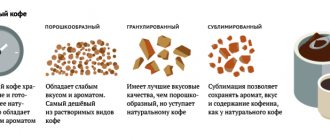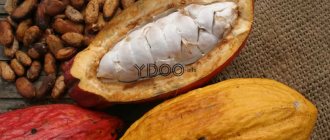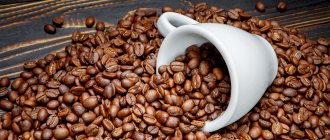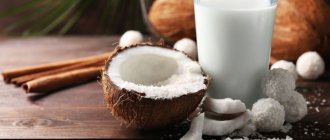Everything you need to know about milk alternatives in coffee
Today, more and more people are abandoning animal milk. Some do it for ethical reasons, others for health reasons, and others follow fashion. Be that as it may, plant-based milk is confidently gaining popularity. Therefore, any modern coffee shop that strives to keep up with the latest trends cannot do without meatless alternatives. This will make the menu more varied and attract guests who, for one reason or another, have given up cow's milk.
We spent a lot of time testing plant-based analogues and ruined quite a few cups of coffee with them before we figured out what was what. And here is the main thing we managed to find out:
How many calories are in coffee with regular milk?
The nutritional value of the drink depends on the amount of milk. Because natural coffee itself has almost zero calories, usually 2-4 kcal per serving. In instant, however, there is slightly more, up to 20 points. But the main fat content comes from the nutritious dairy product.
Let's understand the nutritional value of the dairy products we usually add to our cup of coffee. Usually the calorie content is indicated on each package, but there it is calculated for 100 grams. At home, we rarely make latte or cappuccino according to coffee shop recipes, where steamed heated milk is added to a shot of espresso. Most people add about 25 or 50 grams, depending on the size of the mug. And drinks a drink from one favorite cup. And he buys milk of the same fat content. You can once measure the amount of milk that you approximately pour into a cup in order to fairly accurately calculate the nutritional value of the finished product in the future; minor deviations in this case are not critical.
| Product (fat content) | Calorie content per 100 g | Kcal per 25 ml | Kcal per 50 g |
| Cow (0.1%) | 31 | 8 | 16 |
| Cow (0.5%) | 36 | 9 | 18 |
| Cow (1.5%) | 44 | 11 | 22 |
| Cow (2.5%) | 52 | 13 | 26 |
| Cow (3.2%) | 58 | 15 | 29 |
| Cow (3.5%) | 61 | 15 | 31 |
| Cow, melted (2.5%) | 52 | 13 | 26 |
| Cow, melted (4%) | 68 | 17 | 34 |
Even if you drink 3-4 servings of coffee cocktails a day, and are mistaken in your calculations by 10 points, compared to your total caloric intake (1700-2200 kcal per day), it will not matter at all. You can take an approximate guide instead of having to do scrupulous calculations every time you want to treat yourself to a cup of your favorite drink.
On average, it is believed that a cup of natural coffee with milk contains 25-30 kcal (if you add the nutritional value of coffee beans).
Not all plant-based milk is created equal
Unlike cow's milk, plant milk can vary in composition. Almond, hemp and soy milk sound very healthy and progressive. But don't be fooled: In my research, I found that many barista-friendly alternative milks contain thickeners, sugar, and other chemical additives. Therefore, the next time you go to your favorite coffee shop, don’t be shy to ask to see a milk carton. Take a look at the ingredients and remember the manufacturer. A simple rule works here: the fewer ingredients and artificial sweeteners, the better. We especially recommend avoiding carrageenan - this substance causes irritation and inflammation of the gastrointestinal tract - Carrageenan consumption can also cause inflammatory bowel disease.
©CoffeeProjectTeam
If the composition does not satisfy you, do not forget to inform the barista about it. In small establishments, owners often work as baristas themselves. Or, as an option, ask to report suspicious ingredients to the management of the coffee shop. With this you will improve the life, health and taste sensations of other lovers of almond lattes and rice cappuccinos











